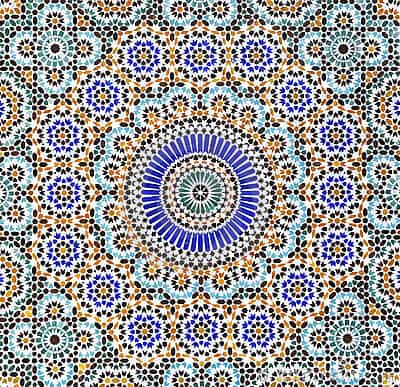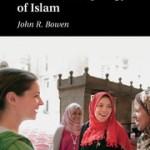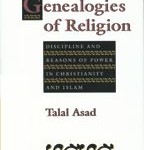In the context of our first thematic week on the anthropology of Islam (follow us on #ANTHROISLAM), Allegra compiled specially for you, dear readers, this list of (rather) recent publications. Of course, the list is NOT exhaustive and many other books could have been included. Islam has become a major object of anthropological investigation over the past 10 years, to the extent that it is virtually impossible to remain on the top of the hundreds of publications released each year. We hope Allegra’s curated list will help you find your way in this frenzy! May you want to receive and review one of these books for us, contact Allegra review editor Judith Beyer at reviews@allegralaboratory.net
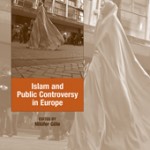 Islam and Public Controversy in Europe. Nilüfer Göle. (Ashgate 2014)
Islam and Public Controversy in Europe. Nilüfer Göle. (Ashgate 2014)
The public visibility of Islam is becoming increasingly controversial throughout European countries. With case studies drawn from France, Germany, Italy, Spain and the UK, this book examines a range of public issues, including mosque construction, ritual slaughter, Sharia councils and burqa bans, addressing the question of ‘Islamic difference’ in public life outside the confines of established normative discourses that privilege freedom of religion, minority rights or multiculturalism. Acknowledging the creative role of dissent, it explores the manner in which public controversies unsettle the religious-secular divide and reshape European norms in the domains of aesthetics, individual freedom, animal rights and law. Developing an innovative conceptual framework and elaborating the notion of controversy as a methodological tool, Islam and Public Controversy in Europe draws our attention to the processes of interaction, confrontation and mutual transformation, thereby opening up a new horizon for rethinking difference and pluralism in Europe. As such, it will appeal to scholars across the social sciences with interests in religion, integration, cultural difference and the public sphere.
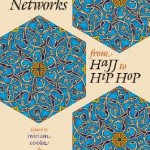 Muslim Networks from Hajj to Hip Hop. Miriam Cooke & Bruce B. Lawrence. (University of North Carolina Press, 2005)
Muslim Networks from Hajj to Hip Hop. Miriam Cooke & Bruce B. Lawrence. (University of North Carolina Press, 2005)
Although neglected in scholarship, Muslim networks have been invoked in the media to portray post-9/11 terrorist groups. Here, thirteen essays provide a long view of Muslim networks, correcting both scholarly omission and political sloganeering. New faces and forces appear, raising questions never before asked. What does the fourteenth-century North African traveler Ibn Battuta have in common with the American hip hopper Mos Def? What values and practices link Muslim women meeting in Cairo, Amsterdam, and Atlanta? How has technology raised expectations about new transnational pathways that will reshape the perception of faith, politics, and gender in Islamic civilization?
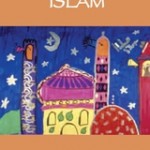 The Anthropology of Islam. Gabriele Marranci. (Bloomsbury 2008)
The Anthropology of Islam. Gabriele Marranci. (Bloomsbury 2008)
An increasing number of people have questions about Islam and Muslims. But how can we approach and study Islam after September 11th? Which is the best methodology to understand an Islam that is changing in a globalized world?
The Anthropology of Islam argues that Islam today needs to be studied as a living religion through the observation of everyday Muslim life.
A New Anthropology of Islam. John Richard Bowen (Cambridge University Press 2012)
In this powerful, but accessible new study, John Bowen draws on a full range of work in social anthropology to present Islam in ways that emphasise its constitutive practices, from praying and learning to judging and political organising. Starting at the heart of Islam – revelation and learning in Arabic lands – Bowen shows how Muslims have adapted Islamic texts and traditions to ideas and conditions in the societies in which they live. Returning to key case studies in Asia, Africa and Western Europe, to explore each major domain of Islamic religious and social life, Bowen also considers the theoretical advances in social anthropology that have come out of the study of Islam.
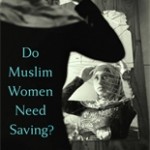 Do Muslim Women Need Saving? Lila Abu-Lughod (Harvard University Press 2013)
Do Muslim Women Need Saving? Lila Abu-Lughod (Harvard University Press 2013)
Genealogies of Religion: Discipline and Reasons of Power in Christianity and Islam. Talal Asad. (John Hopkins University Press 2009)
In Geneologies of Religion, Talal Asad explores how religion as a historical category emerged in the West and has come to be applied as a universal concept.He argues that “religion” is a construction of European modernity, a construction that authorizes—for Westerners and non-Westerners alike—particular forms of “history making.”
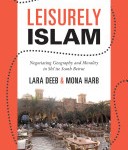 Leisurely Islam: Negotiating Geography and Morality in Shi’ite South Beirut. Lara Deeb & Mona Harb. (Princeton University Press 2013)
Leisurely Islam: Negotiating Geography and Morality in Shi’ite South Beirut. Lara Deeb & Mona Harb. (Princeton University Press 2013)
South Beirut has recently become a vibrant leisure destination with a plethora of cafés and restaurants that cater to the young, fashionable, and pious. What effects have these establishments had on the moral norms, spatial practices, and urban experiences of this Lebanese community? What makes a café morally appropriate? How do people negotiate morality in relation to different places? And under what circumstances might a pious Muslim go to a café that serves alcohol? Lara Deeb and Mona Harb highlight tensions and complexities exacerbated by the presence of multiple religious authorities, a fraught sectarian political context, class mobility, and a generation that takes religion for granted but wants to have fun.
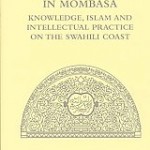 Philosophising in Mombasa: Knowledge, Islam and Intellectual Practice on the Swahili Coast. Kai Kresse. (Edinburgh University Press 2007)
Philosophising in Mombasa: Knowledge, Islam and Intellectual Practice on the Swahili Coast. Kai Kresse. (Edinburgh University Press 2007)
Philosophising in Mombasa provides an approach to the anthropological study of philosophical discourses in the Swahili context of Mombasa, Kenya. In this historically established Muslim environment, at the dawn of the twenty-first century, philosophy is investigated as social discourse and intellectual practice, situated in everyday life. This is done from the perspective of an ‘anthropology of philosophy’, a project which is spelled out in the opening chapter. Ultimately, the study directs attention beyond the regional and the African contexts, towards the anthropological study of knowledge and intellectual practice around the world.
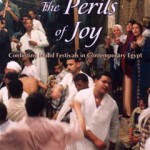 The Perils of Joy: Contesting Mulid Festivals in Contemporary Egypt. Joska Samuli Schielke. (Syracuse University Press 2012)
The Perils of Joy: Contesting Mulid Festivals in Contemporary Egypt. Joska Samuli Schielke. (Syracuse University Press 2012)
Mulids, festivals in honor of Muslim “friends of God,” have been part of Muslim religious and cultural life for close to a thousand years. While many Egyptians see mulids as an expression of joy and love for the Prophet Muhammad and his family, many others see them as opposed to Islam, a sign of a backward mentality, a piece of folklore at best. What is it about a mulid that makes it a threat to Islam and modernity in the eyes of some, and an indication of pious devotion in the eyes of others? What makes the celebration of a saint’s festival appear in such dramatically different contours? The Perils of Joy offers a rich investigation, both historical and ethnographic, of conflicting and transforming attitudes toward festivals in contemporary Egypt.
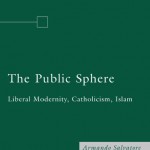 The Public Sphere: Liberal Modernity, Catholicism, Islam. Armando Salvatore. (Palgrave MacMillan 2007)
The Public Sphere: Liberal Modernity, Catholicism, Islam. Armando Salvatore. (Palgrave MacMillan 2007)
This book is a theory-informed, comparative and historical exploration of the notion of the public sphere within Western and Islamic traditions. It situates the emergence of the modern public sphere in a wider historical and theoretical context than usually done in conventional analyses. The work traces cross-cutting genealogies spanning conventional borders between tradition and modernity, and in particular between the Western and the Islamic world. This approach unsettles received, evolutionary views of the public sphere as an exclusive legacy of Western political cultures. The public sphere is finally reconceived as a complex platform for the modern cultivation of culturally diverse, competing, yet intersecting discourses.
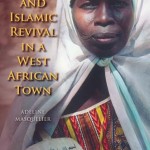 Women and Islamic Revival in a West African Town. Adeline Masquelier. (Indiana University Press 2009)
Women and Islamic Revival in a West African Town. Adeline Masquelier. (Indiana University Press 2009)
In the small town of Dogondoutchi, Niger, Malam Awal, a charismatic Sufi preacher, was recruited by local Muslim leaders to denounce the practices of reformist Muslims. Malam Awal’s message has been viewed as a mixed blessing by Muslim women who have seen new definitions of Islam and Muslim practice impact their place and role in society. This study follows the career of Malam Awal and documents the engagement of women in the religious debates that are refashioning their everyday lives. Adeline Masquelier reveals how these women have had to define Islam on their own terms, especially as a practice that governs education, participation in prayer, domestic activities, wedding customs, and who wears the veil and how. Masquelier’s richly detailed narrative presents new understandings of what it means to be a Muslim woman in Africa today.
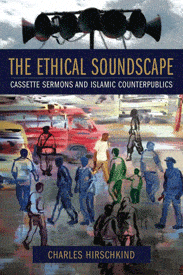 The Ethical Soundscape: Cassette Sermons and Islamic Counterpublics. Charles Hirschkind. (Columbia University Press 2006)
The Ethical Soundscape: Cassette Sermons and Islamic Counterpublics. Charles Hirschkind. (Columbia University Press 2006)
Charles Hirschkind’s unique study explores how a popular Islamic media form—the cassette sermon—has profoundly transformed the political geography of the Middle East over the last three decades. An essential aspect of what is now called the Islamic Revival, the cassette sermon has become omnipresent in most Middle Eastern cities, punctuating the daily routines of many men and women. Hirschkind shows how sermon tapes have provided one of the means by which Islamic ethical traditions have been recalibrated to a modern political and technological order—to its noise and forms of pleasure and boredom, but also to its political incitements and call for citizen participation. Contrary to the belief that Islamic cassette sermons are a tool of militant indoctrination, Hirschkind argues that sermon tapes serve as an instrument of ethical self-improvement and as a vehicle for honing the sensibilities and affects of pious living.
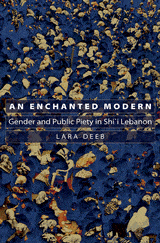 An Enchanted Modern: Gender and Public Piety in Shi‘i Lebanon. Lara Deeb. (Princeton University Press 2006)
An Enchanted Modern: Gender and Public Piety in Shi‘i Lebanon. Lara Deeb. (Princeton University Press 2006)
Based on two years of ethnographic research in the southern suburbs of Beirut, An Enchanted Modern demonstrates that Islam and modernity are not merely compatible, but actually go hand-in-hand. This eloquent ethnographic portrayal of an Islamic community articulates how an alternative modernity, and specifically an enchanted modernity, may be constructed by Shi’i Muslims who consider themselves simultaneously deeply modern, cosmopolitan, and pious. In this depiction of a Shi’i Muslim community in Beirut, Deeb examines the ways that individual and collective expressions and understandings of piety have been debated, contested, and reformulated.
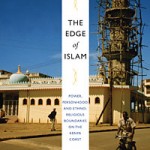 The Edge of Islam: Power, Personhood, and Ethnoreligious Boundaries on the Kenya Coast. Janet McIntosh. (Duke University Press 2009)
The Edge of Islam: Power, Personhood, and Ethnoreligious Boundaries on the Kenya Coast. Janet McIntosh. (Duke University Press 2009)
In this theoretically rich exploration of ethnic and religious tensions, Janet McIntosh demonstrates how the relationship between two ethnic groups in the bustling Kenyan town of Malindi is reflected in and shaped by the different ways the two groups relate to Islam. While Swahili and Giriama peoples are historically interdependent, today Giriama find themselves literally and metaphorically on the margins, peering in at a Swahili life of greater social and economic privilege. Giriama are frustrated to find their ethnic identity disparaged and their versions of Islam sometimes rejected by Swahili. The Edge of Islam explores themes as wide-ranging as spirit possession, divination, healing rituals, madness, symbolic pollution, ideologies of money, linguistic code-switching, and syncretism and its alternatives
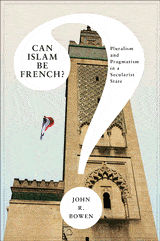 Can Islam Be French? Pluralism and Pragmatism in a Secularist State. John R. Bowen. (Princeton University Press 2011)
Can Islam Be French? Pluralism and Pragmatism in a Secularist State. John R. Bowen. (Princeton University Press 2011)
Can Islam Be French? is an anthropological examination of how Muslims are responding to the conditions of life in France. Bowen asks not the usual question–how well are Muslims integrating in France?–but, rather, how do French Muslims think about Islam? In particular, Bowen examines how French Muslims are fashioning new Islamic institutions and developing new ways of reasoning and teaching. He looks at some of the quite distinct ways in which mosques have connected with broader social and political forces, how Islamic educational entrepreneurs have fashioned niches for new forms of schooling, and how major Islamic public actors have set out a specifically French approach to religious norms. All of these efforts have provoked sharp responses in France and from overseas centers of Islamic scholarship, so Bowen also looks closely at debates over how–and how far–Muslims should adapt their religious traditions to these new social conditions. He argues that the particular ways in which Muslims have settled in France, and in which France governs religions, have created incentives for Muslims to develop new, pragmatic ways of thinking about religious issues in French society.
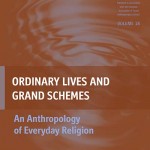 Ordinary Lives and Grand Schemes: An Anthropology of Everyday Religion. Joska Samuli Schielke & Liza Debevec. (Berghahn Books 2012)
Ordinary Lives and Grand Schemes: An Anthropology of Everyday Religion. Joska Samuli Schielke & Liza Debevec. (Berghahn Books 2012)
Everyday practice of religion is complex in its nature, ambivalent, and at times contradictory. The task of an anthropology of religious practice is therefore precisely to see how people navigate and make sense of that complexity, and what the significance of religious beliefs and practices in a given setting can be. Rather than putting everyday practice and normative doctrine on different analytical planes, the authors argue that the articulation of religious doctrine is also an everyday practice and must be understood as such.
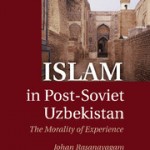 Islam in Post-Soviet Uzbekistan: The Morality of Experience. Johan Rasanayagam. (Cambridge University Press 2010)
Islam in Post-Soviet Uzbekistan: The Morality of Experience. Johan Rasanayagam. (Cambridge University Press 2010)
In recent years, the Uzbekistan government has been criticized for its brutal suppression of its Muslim population. This book, which is based on the author’s intimate acquaintance with the region and several years of ethnographic research, is about how Muslims in this part of the world negotiate their religious practices despite the restraints of a stifling authoritarian regime. Fascinatingly, the book also shows how the restrictive atmosphere has actually helped shape the moral context of peoples’ lives, and how understandings of what it means to be a Muslim emerge creatively out of lived experience.
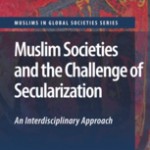 Muslim Societies and the Challenge of Secularization: An Interdisciplinary Approach. Gabriele Marranci. (Springer 2010)
Muslim Societies and the Challenge of Secularization: An Interdisciplinary Approach. Gabriele Marranci. (Springer 2010)
Is Islam compatible with democracy and the West? How do Muslim communities understand the concept of the secular? How have contemporary Islamic scholars addressed the topic and why? How does living in a secularized context affect the everyday lives of Muslim women living in the west? What about the so-called ‘secular’ Muslims? These and other questions are discussed in Muslim Societies and the Challenge of Secularization: An Interdisciplinary Approach. A timely collection which, for the first time, explores these themes from a strong interdisciplinary approach.
 Islam And New Kinship: Reproductive Technology and the Shariah in Lebanon. Morgan Clarke. (Berghahn Books 2009)
Islam And New Kinship: Reproductive Technology and the Shariah in Lebanon. Morgan Clarke. (Berghahn Books 2009)
Assisted reproductive technologies such as in vitro fertilization have provoked global controversy and ethical debate. This book provides a groundbreaking investigation into those debates in the Islamic Middle East, simultaneously documenting changing ideas of kinship and the evolving role of religious authority in the region through a combination of in-depth field research in Lebanon and an exhaustive survey of the Islamic legal literature. Lebanon, Muslim perspectives focus on the moral propriety of such controversial procedures as the use of donor sperm and eggs as well as surrogacy arrangements, which are allowed by some authorities using surprising and innovative legal arguments. These arguments challenge common stereotypes of the rigidity and conservatism of Islamic law and compel us to question conventional contrasts between ‘liberal’ and Islamic notions of moral freedom, as well as the epistemological assumptions of anthropology’s own ‘new kinship studies’.
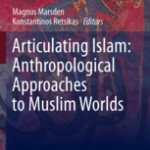 Articulating Islam: Anthropological Approaches to Muslim Worlds. Magnus Marsden & Konstantinos Retsikas. (Springer 2013)
Articulating Islam: Anthropological Approaches to Muslim Worlds. Magnus Marsden & Konstantinos Retsikas. (Springer 2013)
This collection of arresting and innovative chapters applies the techniques of anthropology in analyzing the role played by Islam in the social lives of the world’s Muslims. The volume begins with an introduction that sets out a powerful case for a fresh approach to this kind of research, exhorting anthropologists to pause and reflect on when Islam is, and is not, a central feature of their informants’ life-worlds and identities. The chapters that follow are written by scholars with long-term, specialist research experience in Muslim societies ranging from Kenya to Pakistan and from Yemen to China: thus they explore and compare Islam’s social significance in a variety of settings that are not confined to the Middle East or South Asia alone.
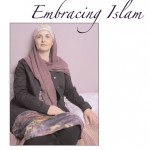 Women Embracing Islam: Gender and Conversion in the West. Karin van Nieuwkerk. (University of Texas Press 2009)
Women Embracing Islam: Gender and Conversion in the West. Karin van Nieuwkerk. (University of Texas Press 2009)
Many Westerners view Islam as a religion that restricts and subordinates women in both private and public life. Yet a surprising number of women in Western Europe and America are converting to Islam. What attracts these women to a belief system that is markedly different from both Western Christianity and Western secularism? What benefits do they gain by converting, and what are the costs? How do Western women converts live their new Islamic faith, and how does their conversion affect their families and communities? How do women converts transmit Islamic values to their children? These are some of the questions that Women Embracing Islam seeks to answer.
 Islam, Politics, Anthropology. Filippo Osella & Benjamin Soares (Wiley-Blackwell 2010)
Islam, Politics, Anthropology. Filippo Osella & Benjamin Soares (Wiley-Blackwell 2010)
Part of The Journal of the Royal Anthropological Institute Special Issue Book Series, Islam, Politics, Anthropologyoffers critical reflections on past and current studies of Islam and politics in anthropology and charts new analytical approaches to examining Islam in the post-9/11 world. It challenges current and past approaches to the study of Islam and Muslim politics in anthropology and offers a critical comprehensive review of past and current literature on the subject. The book presents innovative ethnographic description and analysis of everyday Muslim politics in Asia, Africa, the Middle East, and North America, and proposes new analytical approaches to the study of Islam and Muslim politics.
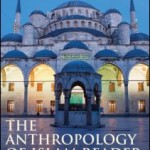 The Anthropology of Islam Reader. Jens Kreinath. (Routledge 2012)
The Anthropology of Islam Reader. Jens Kreinath. (Routledge 2012)
The Anthropology of Islam Reader brings together a rich variety of ethnographic work, offering an insight into various forms of Islam as practiced in different geographic, social, and cultural contexts. Topics explored include Ramadan and the Hajj, the Feast of Sacrifice, and the representation of Islam. An extensive introduction and bibliography helps students develop their understanding of the variety of methodological and theoretical approaches involved in the anthropological study of Islam. In his selections, Jens Kreinath highlights the diversity of practices and themes that were formative for this field of study, making this essential reading for students of Islam at undergraduate and graduate level.

